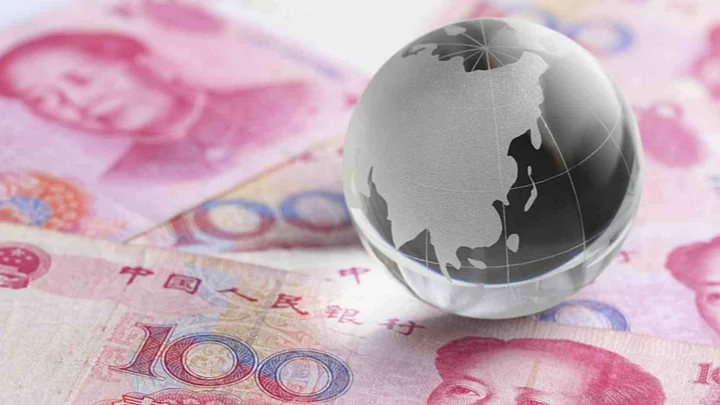Ripple Effect
- Devaluation is the deliberate downward adjustment of a currency relative to another or a standard
- It is a policy tool used to make a country’s exports cheaper and more competitive in the global market
- China devalued its currency by almost 4% in mid-August amid concerns of growth slowdown
- Rupee’s recent fall reflects anxiety about the negative impact on the Indian economy of a falling yuan
What Is Currency Devaluation & Why Should I Care?
It is the deliberate downward adjustment in the value of a country’s currency, relative to another currency, group of currencies or a standard. In order to understand devaluation we need to first understand what exactly the value of a currency means. In simple terms, it’s the amount of a currency you have to pay, say Indian rupee, to purchase a unit of any other currency, say US dollar or euro — this is known as the exchange rate. For example, the rupee may trade at 66.69 against the US dollar while it trades at 74.34 against the euro.
Some countries allow their currencies to trade freely in international markets while certain others, especially the controlled economies, link their currencies versus the US dollar as it ensures stability — this is called currency pegging. In case of currencies which are floating (not pegged to the US dollar) supply and demand help determine the exchange rate. Supply and demand are influenced by factors like GDP, interest rates, inflation and the trading relationship between the two countries.
Great, But What About The Ones Which Are Pegged?
Certain countries use the exchange rate as a tool to stimulate their own economies. Devaluation is typically used as a policy tool to combat trade imbalances and infuse growth. It causes the country’s exports to become less expensive (since the home currency now becomes cheaper), making them more competitive in the global market. Conversely, it makes imports more expensive and is usually aimed at driving domestic consumers to reduce their purchase of imported goods.
That Sounds Like It Should Always Be Done – But Why Not?
While devaluation may seem like an attractive option to make a country’s economy more domestic driven, it can have negative consequences. It may end up making domestic industry less efficient as the pressure of competition is reduced or lifted entirely. Higher exports relative to imports can also increase aggregate demand, which is one of the reasons for a spike-up in inflation. Additionally, the country’s foreign currency debt will become more expensive to repay (as it now takes more of local currency to buy the same amount of foreign currency)
A Recent Example: China
China doesn’t let its currency trade freely in financial markets, instead it tightly controls it by setting a daily rate for the yuan versus the dollar. In China’s domestic market, traders are allowed to push the yuan 2% stronger or weaker for the day. But the People’s Bank of China (PBoC) often ignores any market signals when it sets the next day’s rate, sometimes setting the yuan stronger versus the dollar, even though the market may suggest a weaker yuan.
But in mid-August, the Chinese central bank unexpectedly devalued its currency, sending shock waves through global markets. The yuan was devalued by nearly 2% — the largest single-day drop since 1994. On August 12, it was devalued by another 1.6% and on the following day, 1.1%. On the face of it, the 4% devaluation may seem modest, so let’s put it in context — China’s net export value to the US for July was $32 billion. A 4% devaluation means US importers have to pay $1.3 billion dollars less for Chinese goods. Wouldn’t they rather prefer China over other exporting nations?
But Why Did China Have to Devalue The Yuan? Isn’t ‘Made in China’ Already Visible Everywhere?
It could be seen as a distress call from Beijing. China’s last recorded GDP growth fell to 7% which is better than most countries, but a bad sign for an economy that had averaged 10.6% in 2010. In July, Chinese exports plunged by 8.3% compared to last year. With widespread slowdown and stock market crashes, the government stepped in to control the panic selling. A devalued yuan provides the Chinese government an opportunity to stop the decline in exports in an attempt to restore the GDP growth.
What Does It Mean For India?
The fall in the yuan, despite a central bank statement that it will keep the currency stable, implies that more devaluation could be in the offing. Indian imports from China jumped to $60 billion in 2014-15 while exports plunged to $12 billion leading to a huge trade gap. A further devalued yuan will tilt the balance further in China’s favour. Analysts are also worried that China’s move could trigger a string of devaluations by other central banks to help their exporters.
The rupee’s recent fall reflects anxiety about the negative impact on the Indian economy of the falling yuan. In August the rupee saw its worst monthly fall in the last two years. An increased inflow of very cheap Chinese goods making their way to the Indian market will put the pressure on our domestic market. Only time will tell how the currency standoff will work out for all the involved parties but clearly, the Reserve Bank Governor and the government will have their hands full for some time to come.
